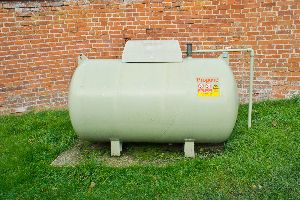
Nationwide, many families rely on regular propane delivery services to provide them with the fuel they need for heating and cooking, particularly in rural areas underserved by local gas and electricity suppliers. However, even residents of larger towns and cities are turning to this economical fuel source. Whether you’ve recently decided to switch to propane or moved into a house fueled by it, you may have some questions about it. Find the answers you’re looking for in the following guide.
An Introduction to Propane Delivery
How often should I replace my tank?
In general, tanks must be replaced for use every 10 or 12 years from the date of their manufacture. You should be able to find this date on a tag or plate attached to the tank. If a propane specialist determines your tank to still be in serviceable condition after this point, they may be able to recertify it for a further 5 years of use.
What is the difference between a tank and a cylinder?

Propane is typically stored and delivered in containers called cylinders and tanks. While these two terms are often used interchangeably, they describe different objects with different purposes and properties. Cylinders are usually used to fuel appliances like portable heaters and propane grills. Smaller cylinders can even be carried in a backpack to run camp stoves and similar items.
Tanks, on the other hand, are much larger, ranging in capacity from 100 to 1,500 gallons. They can be transported only when empty, after which they’re installed semi-permanently for home or business use. Only once they’ve been mounted and connected to your home’s fuel system can they be filled and used.
Why does my tank level drop after propane delivery?
After a delivery, it’s not uncommon to see the gauge indicate a lower level than it did when it was filled. One reason this can happen is that the gauge isn’t giving you an accurate reading. Alternatively, if your gas was delivered during a warmer period of the day, it might have expanded and filled more of the tank than when cool and condensed.
Is propane safe?
As a petroleum product, propane is flammable. However, all propane tanks are designed to withstand significant pressure from inclement weather and sunlight, and they’re equipped with bleeder valves to relieve excess pressure. As such, accidents are exceptionally rare, and a qualified propane delivery service will offer regular inspections to ensure that your tank is in safe, serviceable condition.
When you’re ready to start heating your home with affordable, efficient propane, get in touch with Murphy’s Gas Co. Inc. in Connersville, IN. Since 1947, this family-owned and -operated propane delivery service has supplied fuel to residents within a 100-mile radius, along with tank maintenance, repair services, and convenient billing options. Call (800) 284-9585 to schedule a delivery, and visit them online for more information.
About the Business
Have a question? Ask the experts!
Send your question

